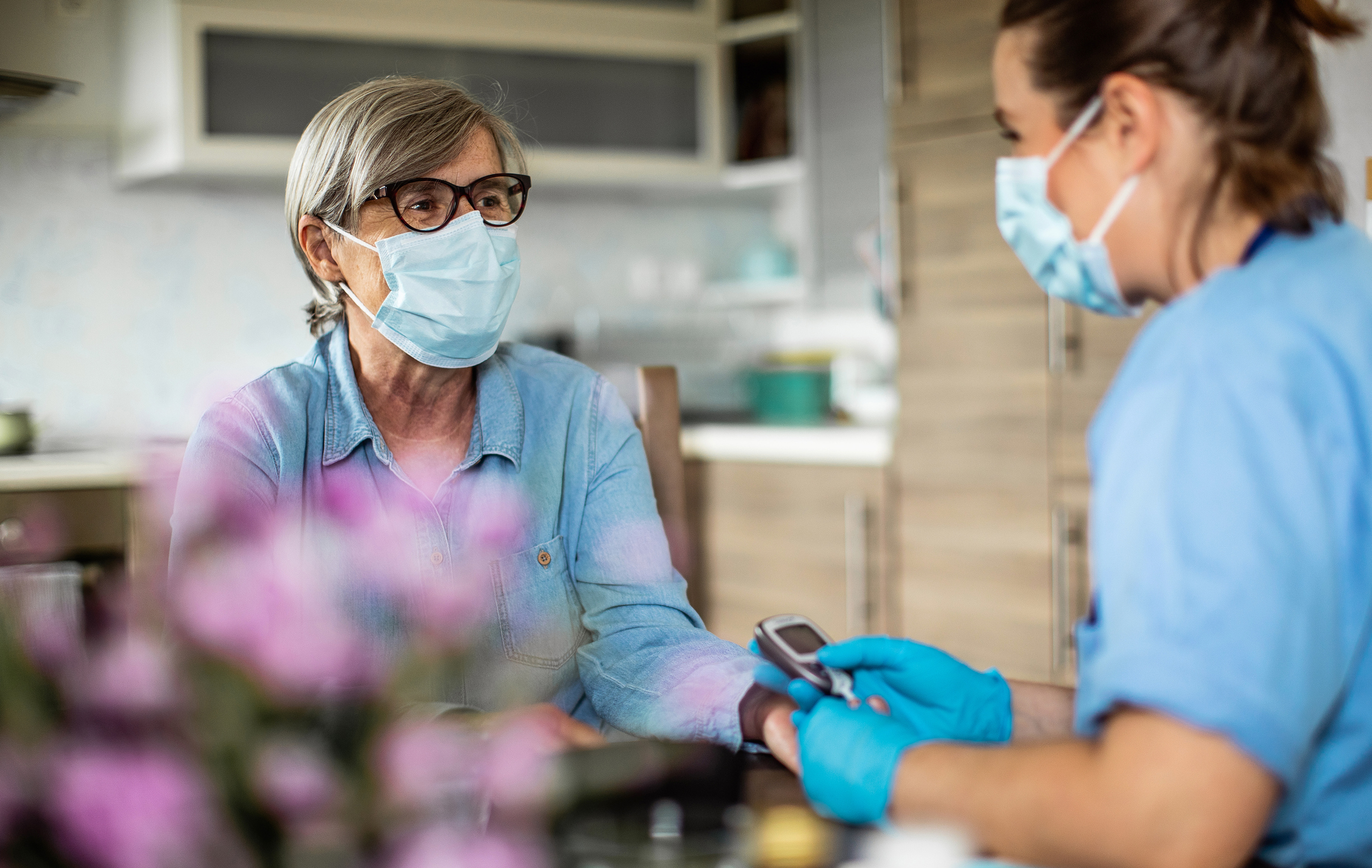Individuals 65 years and older are more than 100 times as likely to develop severe COVID-19 including the risk of hospitalization or death as compared to individuals under the age of 65. We asked Dr. George Kuchel, Chief, Geriatric Medicine at UConn Health and Director, UConn Center on Aging what older adults can do to prevent severe COVID-19 and to also describe ongoing research studies in the UConn Center on Aging.
As we face a resurgence of COVID-19, how can older adults prepare?
It is important to continue to use the recommendations set forth by the CDC:
- Wash Hands Frequently with soap and water. Use hand sanitizer when soap and water are not available
- Avoid touching your eyes, nose, and mouth with unwashed hands.
- Avoid Close Contact- Put 6 feet of distance between yourself and people who don’t live in your household.
- Cover your mouth and nose with a mask when around others
- Get your flu vaccine and other relevant vaccines as suggested by your provider.
- Remember good nutrition and physical activity are important to keep you healthy and boost your immune defenses.
Are there any studies that are focusing on older adults?
A recent study revealed that ironically most trials testing COVID-19 treatments exclude older adults. However, here at UConn Center on Aging, we have two studies currently being conducted that are specifically designed for older adults.
We are leading an NIH-funded clinical trial in collaboration with the Marcus Institute for Aging Research at Harvard Medical School and resTORbio. This study is looking at a novel approach to COVID-19 by using medications designed to overcome aging-related declines in immune responses.
This study not only does not exclude older adults but is actually testing a geroscience-guided therapy that seeks to decrease the risk of severe COVID19 by targeting biological aging.
There is nothing we can do about chronological aging (numbers of years passed since birth) but using strategies that target biological aging we can slow its rate and therefore improve our ability to respond to infections, slowing the onset and progression of varied chronic diseases.
A second COVID-19 trial looking at the effects of influenza vaccination in COVID-19 recovered participants is also taking place at the UConn Center on Aging. Every flu season is different, and influenza infection can affect people differently. Even healthy people can become very sick from the flu and spread it to others. As we age, our immune defenses become weaker, which places older people at a greater risk for severe illness from influenza. We also know that with aging, the body’s ability to have a good immune response after receiving the influenza vaccine decreases. What we hope to learn from this study is how having had COVID-19 may impact influenza vaccine response in both younger and older adults.
What do you hope to find as a result of these studies?
UConn Center on Aging is committed to protecting the health and safety of our community with a shared mission of uncovering answers to the most pressing challenges of aging and health. These studies are designed to explore a new and unexplored approach to the prevention of severe COVID-19 by addressing biological aging which represents the greatest risk factor
What do these studies entail and how can older adults participate?
A Randomized, Double-Blind, Placebo-Controlled Phase 2a Study of RTB101 as COVID-19 Post-Exposure Prophylaxis in Adults Age ≥65 Years
For the study looking to prevent or delay the onset of COVID-19 symptoms in asymptomatic positive COVID-19 participants, participants will complete the entire study from their home remotely. They will be asked to take the study drug for two weeks and be monitored for one additional week afterward.
Those who are age 65 or older and who either have had a positive COVID-19 test result in the last 14 days but currently have no COVID-19 symptoms, or who have recently been exposed to someone living in their household who has a positive COVID-19 test may qualify.
The trial will be randomized and participants will receive either the study medication (RTB101) or a placebo to take once a day for two weeks. The study team will call participants twice a week over the two weeks, and for one additional week after completing the study medication.
Everything is done remotely in the comfort and safety of participants’ homes
Dynamic assessment of the immune system in COVID-19 patients: Flu Vaccine Pilot Study 1
The study enrolling COVID-19 recovered patients is looking for participants willing to receive the FDA-approved seasonal influenza vaccine at the usual time (October through early December).
Participants 65 years of age and older will receive the Fluzone High-Dose while those 25-50 years of age will receive the standard Fluzone vaccination. There will be 5 visits over a period of two months at the UConn Center on Aging with blood samples collected at all 5 visits and nasal swab samples collected at two of these visits. All treatment and lab testing will be provided at no charge and participants will receive monetary compensation for participation.
We are currently accepting trial participants for both of these studies and those that may be eligible and interested can contact the study coordinator, Lisa Kenyon-Pesce at kenyon-pesce@uchc.edu or (860) 679-2305 or Toll-free 1(844)925-8500



